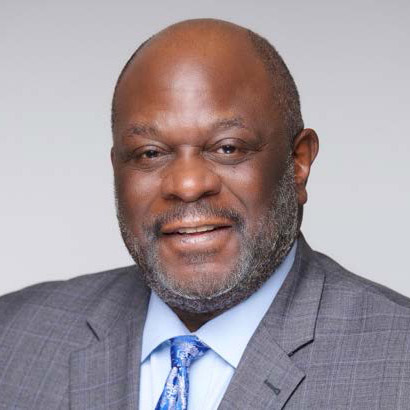Presenter Profile

Joseph L. Wright, MD, MPH
American Academy of Pediatrics
Professor (adjunct), Emergency Medicine and Pediatrics [Children's National]
George Washington University School of Medicine and Health Sciences
Professor (adjunct), Health Policy and Management
George Washington University School of Public Health
jwright@aap.org
Joseph L. Wright, MD, MPH is Chief Health Equity Officer and Senior Vice President of the American Academy of Pediatrics (AAP). He most recently served as a Chief Medical Officer within the University of Maryland Medical System and prior to that was tenured Professor and Chair of Pediatrics at the Howard University College of Medicine. He spent more than two decades in leadership at Children's National Hospital in Washington, DC where he provided strategic direction for the organization’s advocacy mission, public policy positions, and community partnership initiatives while contemporaneously serving 17 years as State Pediatric Medical Director within the Maryland Institute for Emergency Medical Services Systems. Academically, Dr. Wright is among the nation’s original cohort of board-certified pediatric emergency physicians with scholarly interests that include injury prevention, prehospital pediatrics, and the needs of underserved communities. He has contributed over 120 publications to the scientific literature, served more than 30 visiting professorships, and was a principal investigator of the NIH-funded DC-Baltimore Research Center on Child Health Disparities. Dr. Wright is recipient of several lifetime achievement awards and has recently had two annual advocacy awards named in his honor issued, respectively, by the AAP Section on Emergency Medicine and Children’s National.
Presentations
An Equity Advisory Committee to Support the Work of a Community Facing Injury Prevention Organization
Sadiqa A.I. Kendi, MD, MPH, CPST
Joseph L. Wright, MD, MPH
Torine Creppy
Since the murder of George Floyd, there has been unprecedented recognition by many disciplines on the importance of identifying and addressing the structural causes of inequities, including racism, classism, and other forms of bigotry. The injury prevention community is no exception; injury inequities and outcome disparities persist and in some cases are widening. The CDC Vital Signs described a 28% increase in drowning deaths for children between 1 and 4, and Black people between 2019 and 2021. American Indian/Alaska Native people continue to have the highest drowning rates. In addition, Black and American Indian/Alaska Native children have the highest rates of traffic fatalities, both as pedestrians and as occupants. The leadership of Safe Kids Worldwide recognized the need for an equity science-based approach to programs, policies, and research to address these inequities. This led to the formation of the Safe Kids Worldwide Equity Advisory Committee (EAC).
The EAC was chaired by a physician scientist with expertise in injury prevention and equity science. The chair along with Safe Kids Worldwide leadership identified subject matter experts in water safety, child passenger safety, safe sleep, child fatality review, and emergency preparedness to be involved in the committee. Further, Safe Kids Worldwide governance was directly aligned with the EAC.
The EAC includes 10 members, including the chair, 6 academically-oriented, subject matter expert pediatricians, a Safe Kids Worldwide board member (also a subject matter expert pediatric subspecialist), and 2 Safe Kids Worldwide staff members. Each member agreed to a 3 year term. The EAC meets monthly for one hour and is also represented on the agenda of all Safe Kids Worldwide Board meetings. The committee discusses various research ideas, and provides input on programming and advocacy. The group has presented on approaches to centering equity in injury outcomes at various scholarly meetings, including the Pediatric Academic Societies, the Society for the Advancement of Violence & Injury Research, Lifesavers, and Safe States. The EAC has successfully supported Safe Kids Worldwide in implementing an equity science-based approach. This is in line with comprehensive work being done by other pediatric focused organizations such as the American Academy of Pediatrics, which has seated equity science experts to support the incorporation of race-conscious approaches to the development of clinical practice guidelines.
It is feasible and mutually beneficial for a scholarly-based, academic committee to support the work of a community facing injury prevention organization in prioritizing an equity focus.
1. To understand how an academic committee with expertise in injury and equity science can support the work of community facing organizations.
2. To understand the breadth and depth of work that can be accomplished by an injury prevention organization with the support of an academic focused committee.
3. The field of injury prevention can benefit from partnerships across community facing organizations and equity science pediatrician experts.
